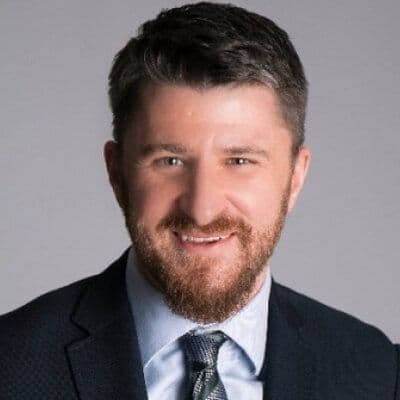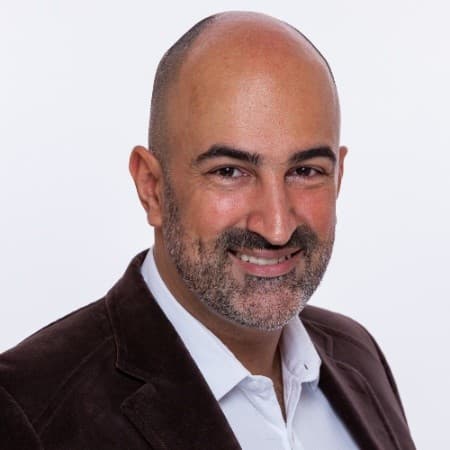/ EPISODE 60
On Using OKRs in Startups
GUESTS

Luca Cipriani
Head of Architecture, OKR Coach at Jimdo
Listen on
Listen on
Google Podcasts
Listen on
Pocket Casts
Listen on
Spotify
Listen on
Apple Podcasts
Listen on
Stitcher
or use this URL in your favorite podcast app: https://feeds.transistor.fm/dreams-with-deadlines
Episode notes
From earliest stage start-up to coveted unicorns status, few people have had more of a front-row seat on helping grow businesses than Jenny Herald’s guest on this episode of Dreams With Deadlines.
Luca Cipriani, Head of Architecture and OKR Coach at Jimdo, knows intimately the strategic elements that make scaling ventures fly or fail – and he’s sharing his rules of the road. It all starts, he says, with building nimbleness and psychological safety into the blueprint from your start-up’s earliest days while keeping goals flexible without losing sight of the core North Star mission.
What you will learn
- How integrating OKRs into processes from the outset ensures they are foundational at every stage of execution.
- What the goals should be in building a framework for your start-up journey.
- Why it’s important not to tie key initiatives too closely to key results.
- Which ingredients successful start-up cultures tend to share in common.
- What are some predictable barriers to building a healthy workplace – and how to head then off at the pass.
- The show wraps up with Luca’s thoughts on the importance of keeping OKRs simple and giving teams the room to evolve, experiment, iterate and surprise. How integrating OKRs into processes from the outset ensures they are foundational at every stage of execution.
- What the goals should be at the outset of a start-up journey.
- Why it’s important not to tie initiatives too closely to key results.
- Which ingredients successful start-up cultures tend to share in common.
- What constitute the most predictable barriers to building a healthy workplace – and how to head them off at the pass.
Show notes
- [00:03:13] Getting Started on the Journey: About at what point in scaling Luca Introduces OKRs and other optimization solutions.
- [00:04:33] What are the goals when implementing OKRs at an early stage:
- Creating strong alignment from the outset.
- Instituting systems to measure as much as possible any relevant KPIs.
- Introducing rational metrics that can anchor young founders as they navigate the high-stakes, high-stress start-up phase.
- Establishing a framework for what success looks like and means.
- [00:06:23] Balancing Quality and Quantity: Luca recalls how he has helped start-ups create sustainable objectives through systematic, evolving feedback.
- [00:09:08] It’s a process: Why Luca believes OKR processes must necessarily be iterative and have built into them an assumption that there will be missteps as well as the need for reflections and adjustments along the way.
- [00:11:13] What it looks like to help founders or teams, at whatever stage, assess on an ongoing basis and roll those learnings into go-forward plans.
- [00:13:08] Luca explains how he deploys OKRs – and parses outcomes versus outputs and inputs – with early-stage start-ups that don’t yet have a well-established baseline.
- Companies must have a clear North Star.
- Putting initial metrics in place can be a way to get started getting started putting measurable processes in place.
- [00:15:12] How Luca helps start-ups move into a scaling phase, deploying OKR processes that keep companies on track with their vision and strategy:
- Top-up as well as bottom-down collaboration.
- Intentionally aligned KPIs understood across teams.
- Cross-department communication to promote consistent global goals.
- [00:18:33] Why it’s important not to tie specific initiatives to key results:
- It can yoke people to fruitless busy work.
- It reduces nimbleness.
- It thwarts creative problem-solving.
- It discourages experimentation.
- [00:20:38] Luca shares examples of unconventional wins and success stories worth millions of dollars saved through out-of-the-box flexibility with OKRs.
- [00:23:36] Going off the Rails: Illustrations (both real-world and in film) of how communication gaps, micromanagement, and relentless pressure can take companies off course and away from core values by pursuing the extraction of value at any cost.
- [00:30:15] About mastery, purpose, autonomy, and how flexible OKRs can be leveraged to motivate teams.
- [00:30:54] Taking a closer look at workplace cultures and the attributes Luca has seen in the unicorns with which he has worked:
- Maintaining a unity of purpose.
- Creating an environment in which all team members feel they’re contributing.
- Preserving inter-departmental intimacy and removing barriers to communication.
- Cultivating agency among teams to be autonomous and work autonomously (i.e. minimize micromanagement).
- Delegating judiciously – enough but not too much.
- Emphasizing unity of purpose.
- Fostering psychological safety so teams feel free to seek help and admit failure.
- [00:36:05] About the concept of aligning around the perfect number of OKR objectives. And that number is? One! Not because there aren’t other goals, but because the overarching focus needs to stay on the business’s true North Star.
- [00:37:09] What Luca sees as the most common barriers to building healthy, effective workplace teams:
- Lack of communication.
- Toxic behaviors that squelch authenticity and honesty.
- Siloed teams.
- Lack of direct interaction and feedback.
- Lack of autonomy or agency to self-organize, act independently and surprise.
- [00:40:28] A Round of Quick-Fire Questions for Luca:
- What’s your Dream with a Deadline? To have fewer things to do and to do them faster!
- What management techniques and practices do you believe have most helped the teams with which you’ve worked? Attention to detail, staying open-minded, helping people figure out how to raise the bar on quality.
- What advice would you give to keep teams focused while scaling up and incorporating OKRs? Set and communicate expectations clearly!
Relevant links:
- https://lab.okrbusiness.com
- More about Monsters, Inc.
- More about The Lego Movie
- "Drive: The Surprising Truth about What Motivates Us," by Daniel Pink
- More about the views of OKR coach Christina Wodtke
About our guest:
Luca Cipriani is an OKR Coach and Engineering Manager with great expertise in SaaS products and companies. A strong contributor to Open Source software, he also has a proven record in managing developers and other managers, scaling teams and SaaS businesses and making them successful.




